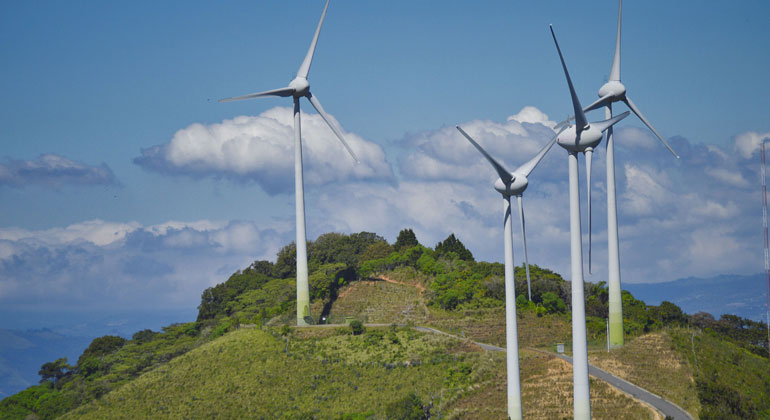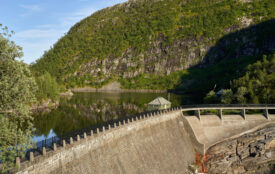Modern wind turbines can more than compensate for decline in global wind resource
Freiburg environmental meteorologists develop global techno-climatic scenarios and site projections until 2060.
Wind energy contributes significantly to the energy sector’s sustainable, low-CO2 transformation. However, the efficiency of wind turbines depends on available wind resources and the technical characteristics of the turbines. Climate change, of all things, is causing the global wind resource to diminish in the 21st century. At the same time, the technical properties of wind turbines are steadily improving.
Based on global climate models and newly developed techno-projections, researchers Dr. Christopher Jung and Prof. Dr. Dirk Schindler were able to estimate these two opposing influencing factors and calculate their impact on the global and regional efficiency of wind turbines by 2060. One finding is that the efficiency of the global wind turbine fleet could increase by as much as 23.5 percent by 2035, assuming favorable climate trends, if the use of wind energy were optimized. The findings of the two scientists from the Institute of Earth and Environmental Sciences at the University of Freiburg were published in the journal Nature Energy.
High spatial resolution
The calculations of the two researchers provide an important basis for the future global expansion potential of wind energy. In their study, they identify accessible regions where wind resources can be used most efficiently under future climate conditions. The approach enables the determination of the best locations worldwide with particularly high spatial resolution for individual wind turbines and wind farms.
“What was surprising was the low impact of climate change on the wind resource compared to the projected technical development of wind turbines,” says Jung. Thus, the climate change-induced decline in the wind resource can be more than offset with modernization of the wind turbine fleet. Also more significant than the overall impact of climate change on usable wind are fluctuations in resource availability between individual years.
Overview of facts:
- Original publication: Jung, C., Schindler, D. (2022): Development of onshore wind turbine fleet counteracts climate change-induced reduction in global capacity factor. In: Nature Energy https://doi.org/10.1038/s41560-022-01056-z
- Dr. Christopher Jung is a research associate and Prof. Dr. Dirk Schindler is a lecturer at the Chair of Environmental Meteorology at the University of Freiburg. One of their research interests is the estimation of variable renewable energy resources spanning from the local to the global level.








